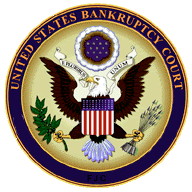Adrian J Cotterill, Editor-in-Chief
In news that will no doubt send shockwaves through the industry (but shouldn’t if you understand why they have done it), BroadSign International filed Chapter 11 documents late on Sunday evening in the U.S. Bankruptcy Court in Wilmington, Delaware.
 Chapter 11 is of course a chapter of the United States’ Bankruptcy Code, which permits reorganisation under the bankruptcy laws of the United States.
Chapter 11 is of course a chapter of the United States’ Bankruptcy Code, which permits reorganisation under the bankruptcy laws of the United States.
Remember when we wrote back in January 2012 “During Engels’ short tenure at BroadSign … he prepped them for an IPO, over-expanded, oversold and by all accounts made a bid for John Ryan … before it all came tumbling down …” well that and earlier issues with share ownership, poor incoming investment decisions (think ‘desperate for cash’) had left BroadSign with too many shareholders and investors.
Looking through the court documents it’s clear that BroadSign don’t owe any suppliers anything – this looks to us just like a simple way to get rid of the old share ownership structure and start afresh. The assets of the business will now be for sale by the court (receiver) and no doubt Burr Smith – the guy who has already come to the rescue of BroadSign once before (he invested USD 10 Million or so to solve the mess that the Engels / Petters era had caused) will be the frontrunner to buy and re-incorporate the business.
No BroadSign ‘officers’ were available for comment but we spoke to a couple of BroadSign’s big customers. None of them would comment publicly or confirm but it appears that they had all been individually briefed over the last few weeks that this court filing was about to happen.
I guess most importantly none of them expressed concern and seemed to think that business with BroadSign (who are after all a SaaS offering) would continue as normal.
Our limited knowledge of the United States’ Bankruptcy Code leads us to think that the process for ‘administration’ (we are probably mixing the terms we know and understand in the UK with the US but bear with us here) would take about 60 days.
BroadSign have been doing well recently – their business with JCDecaux seems to go from strength to strength, business with Neo Advertising (where Neo still exists) is also strong and in the three ad based verticals in which they play you could argue that they have one of the ‘prestige’ accounts in each. Not only that but there have recently been rumours of a couple of US and UK ad based networks about to switch from rival software to BroadSign.
There’s been little love lost between ourselves and BroadSign for many a year so maybe a new owner will change that. If BroadSign’s customers are happy, the employees secure in their jobs, the data centre still ‘humming’ and a new SINGLE owner on the horizon we would say that whilst this is weird at best (and we will be watching events closely) it’s not something the industry, existing customers or prospective customers should worry about.





March 5th, 2012 at 13:34 @607
Ok, so I am not very familiar with chapter 11, but if I were to deploy a 2000 screen network, and spend quite a large sum of money, I would think twice, wouldnt you?
Regarless of the reasons, it would be the “bankruptcy” term what would worry me the most.
March 5th, 2012 at 13:39 @610
That’s correct “you are not very familiar with chapter 11” – you probably fly airlines that are in chapter 11 all the time!
March 5th, 2012 at 14:43 @655
Maybe the Bankruptcy Judge will wave his legal WAND and make Rick Engel’s holdings worthless
March 5th, 2012 at 15:58 @707
@captain america: way to be condescending, that’s a good way to win friends and influence people.
The reality is that there are many strategic advantages to filing for Chapter 11, which unlike Chapter 7, allows the company to continue to do business. Typically called “reorganization” instead of “bankruptcy”, this court-filing allows the company to consolidate claims, streamline payment and force a settlement on the aggrieved parties.
While it’s true that Ch.11 has lost some of its stigma in recent years, there have been both successful exits from Ch.11 (see GM) and miserable failures (see Enron). In order to determine if a company can truly exit Ch.11 leaner and meaner, it’s best to look at the business model and the debt to asset ratio. Neither looks good in this case.
@Luis is correct in that any network worth its salt would look for alternatives. When GM filed, customers looked at Ford. When Delta filed, customers looked at United. When a software company files (instead of looking for a suitor/partner) customers are right to look elsewhere.
March 5th, 2012 at 18:54 @829
I believe I understand, but if what I’ve been reading is correct, a judge must decide if the plan is viable or not. Maybe, it could even be agrred previously… dont know. Quite complex as I dont think there is such a law in Spain, and as I was saying to someone today, that is why lawyers and accountants “get the big bucks”.
Anyhow, good luck to all. Would be a shame, because the latest version really showed potential and hard work.
March 5th, 2012 at 23:26 @018
Adrian,
Your characterization of bankruptcy is entirely too benign. It isn’t something a company chooses because it finds its investors too numerous or irritating. In general, bankruptcy is forced on a company because it cannot pay its bills. From the Company’s press release: BroadSign and its affiliates are insolvent and income is “insufficient to continue their operations without an infusion of further capital,” Dusho said.
That means that the business model is a failure. Possible reasons include too few customers, too little revenue (not the same thing), a cost structure which makes profitable operations impossible, too much debt to be serviced and many more. Given how long Broadsign has been around trying to become a successful business, one has to wonder if anyone can take the assets and create a workable business out of them.
This has to be seen as a boon to competitors and a huge bust to whoever invested in the Company. Investors will, probably, be completely wiped out.
Next up, Wireless Ronin? I think its losses since inception still exceed total revenues.